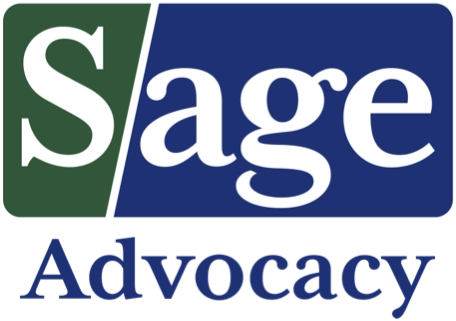Sage Advocacy urges professionals to get to know Guiding Principles of Assisted Decision-Making law – and provides Minding Your Marbles video as explainer for all.
Health and social care professionals and legal practitioners need to understand the intention of Assisted Decision-Making legislation – and adapt their work processes to give effect to its aims.
That’s according to Sage Advocacy, which has found that – while the law has been in force for almost ten months – some attitudes and practices within the systems that need to implement it, are still not taking account of people’s rights.
When the spirit of the law – that people should be empowered and facilitated to keep charge of their own life decisions – is embedded in professional practice, the public will get to know what their rights are and how they can access them.
To that end, Sage Advocacy has produced a valuable information resource, Minding Your Marbles, which gets to the heart of the Act and how it changes things, in just over 10 minutes.
CEO Mervyn Taylor said: “Ireland’s new Assisted Decision-Making (ADM) laws commenced last April and progress is being made, but key stakeholders such as the HSE, Legal Aid Board, Decision Support Service and the Courts Service need to collaborate and address ongoing implementation issues.
“These laws are particularly relevant for people who have a challenge with capacity to make important decisions (and their families and carers) such as people who live with frailty, dementia, an intellectual disability, an acquired brain injury, or who communicate differently.
“A central principle of the laws is that a ‘least restrictive’ or most straightforward approach should be taken to access and include a person’s decision. This principle is backed up by new Decision Support Arrangements, and an expanded role for Independent Advocates which are now in place.
“However, we continue to see efforts to apply the old Wards of Court system, and to go for the most restrictive approach. That old system is now gone forever, and all professional and services need to adapt and upskill.
“Another Guiding Principle in the new laws is that the will and preference of the person should always be sought. In spite of this, the now obsolete ‘best interests’ approach is still in evidence.”
Sage Advocacy today pointed to an important information resource to help both the public and professionals better understand what these laws mean for people, their families and their work.
Minding your Marbles is an awareness video about the new laws, which also proposes supporting a person with diminished capacity to make decisions using an approach called ALERT. It is available for the public and relevant professionals at www.sageadvocacy.ie/resources/assisted-decision-making/
Mervyn Taylor said: “This legislation is all about Minding Your Marbles and ensuring that others, including family members and health and social care professionals, stop thinking that they can make decisions in our ‘best interests’.
“We are now obliged to assist people with making a particular decision and not presume that because a person needs support that they lack capacity. I really encourage the public and professionals to understand these legislative changes as they will affect all families at some point in life, and they have implications for many of our services.”
Highlighting specific elements of the ADM legislation that need to be understood better, Sage Advocacy pointed to:
- A lack of awareness of the Guiding Principles of the legislation, which leads to unnecessary and costly legal interventions, or delays to Court proceedings.
- The need for the voice of the person to be heard in Court – the Act provides that the voice of the person can be heard through the attendance of a relevant person, or via video link.
- The need for specific training for medical and social care professionals on assessing the capacity of a person whose decision-making capacity is in question.
- The right of a person to have access to an Independent Advocate to assist and support them to voice their will and preference.
- The need for awareness and training among legal professionals including the Legal Aid Board, Solicitors and Judges to ensure that the voice of the person is heard and not just that of family and Clinicians.
- The introduction of a system of incentives to encourage people to ‘think and plan ahead’ and to utilise the Think Ahead resource, and Enduring Power of Attorney and Advance Healthcare Directives.
- The need for specific legislation to protect the personal liberty of people detained in congregated care settings, such as nursing homes and hospitals.
Mr Taylor also pointed to the importance of Independent Advocates. “Advocates are independent of family, service provider and systems interests and they can and are increasingly playing an important role in the implementation of this legislation.
“Sage Advocacy has been involved in providing a ‘voice for the person’ in a quarter of ADM cases in 2023. This a testament to the hard work and dedication of Sage Advocates and our Legal Support Unit who are working on limited resources.”
Draft figures for 2023 show a 40% increase in information and support calls to Sage Advocacy compared to 2022 and a 24% increase in advocacy cases.
Mr Taylor concluded by saying: “It is now enshrined in our laws that a reduction in decision-making capacity, does not mean any loss of rights, dignity or respect.”
Further Information
Ronan Cavanagh, Cavanagh Communications: 086 317 9731 / ronan@cavanaghcommunications.ie



